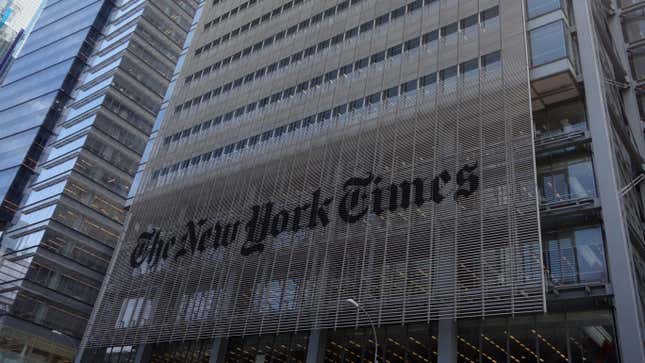Maybe Journalism Needs a Coup
Latest

On Wednesday, the New York Times Opinion section made the choice to publish an op-ed by Republican Senator Tom Cotton that can only be described as a fascist call for the military to crack down on people protesting against police violence and brutality, under the incendiary headline “Send in the Troops.” Earlier that day, the Philadelphia Inquirer had made a similar choice to publish an op-ed titled, “Buildings Matter, Too.”
Both of these deliberate choices by the outlets’ opinion editors were widely criticized by people who asked very reasonable questions about the ethics of these decisions. Why give platforms, and the implied stamp of approval of two of the country’s leading newspapers, to ideas that are both incredibly dangerous and incredibly dumb? The answer, I suspect, is some combination of wanting rage clicks, a fucked-up belief that the value of black people’s humanity is worthy of debate, and the utter inability of Old White Men Journalists to let go of the idea that they alone should get to decide the terms of public conversation.
-

-

-

-

-

-

-

-

-

-

-

-

-

-

-

-

-

-

-

-

-

-

-

-

-

-

-

-

-

-

-

-

-

-

-

-

-

-

-

-








































